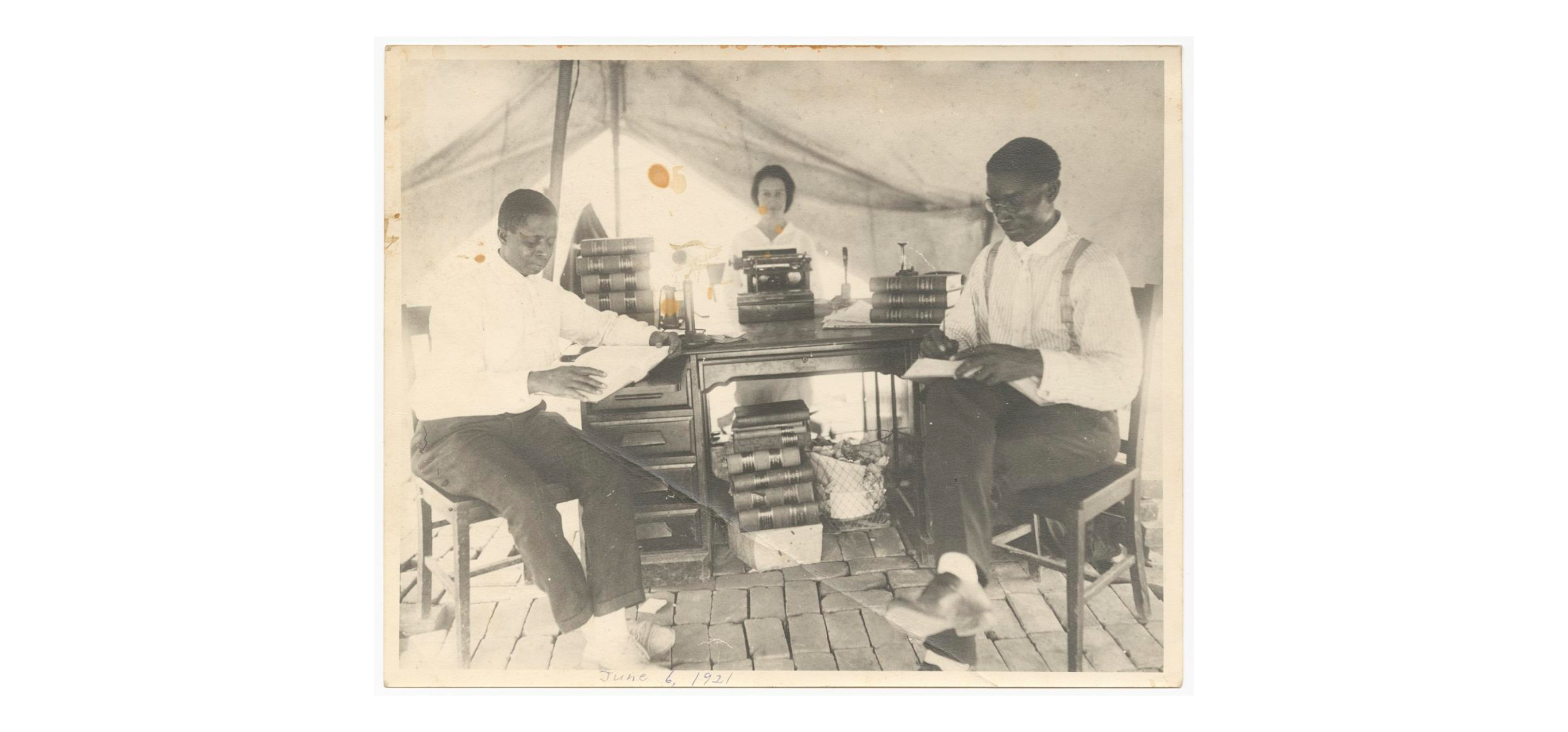Buck Colbert Franklin, Legal Champion of Tulsa Massacre Survivors
In recognition of Black History Month, we are revisiting an event that changed the course of American history — and one that not enough Americans today learn about in school. In 1921, a white mob descended on the affluent Black neighborhood of Greenwood in Tulsa, Oklahoma, and burned 36 city blocks that included vibrant Black-owned retail stores, churches, restaurants, schools, newspaper offices and a hotel. White pilots flew airplanes that dropped dynamite on terrified citizens. Rioters broke into homes, stealing money and jewelry before destroying them. As many as 300 people people died over two days, with the bodies of those killed discarded in mass graves. Hundreds more were injured, and nearly 10,000 people were left homeless in the wake of what is now known as the Tulsa Race Massacre.
One surviving Greenwood resident would go on to play a crucial role in the community’s attempts to recover. Buck Colbert Franklin, born in 1879 to a father who had escaped slavery during the Civil War, was an attorney with an office in Greenwood. He later wrote about what he saw during those two terrible days:
With his office building turned to ashes and his neighbors reeling from the loss, Franklin knew his legal services would be needed more than ever. So he set up a tent in which to counsel clients, shaded from the hot Oklahoma sun.
In the midst of this unthinkable loss, the survivors of the massacre mourned their neighbors and vowed to rebuild the community their families had worked to forge over decades. But the Tulsa City Council quickly passed an ordinance that made this work much more difficult, rezoning the neighborhood from residential to commercial to prevent Black residents from rebuilding their homes. Franklin led the legal battle against this ordinance, filing suit against the city of Tulsa on behalf of Greenwood’s residents before the Oklahoma Supreme Court. Franklin’s victory there made it possible for Greenwood residents to begin rebuilding their community. It was not an easy road, as insurance companies refused to pay many property damage claims to policyholders. Though it would never be the same, Greenwood did thrive once again for several decades before other forces of decline changed the neighborhood’s fate once again.
Franklin and his colleagues went on to become experts in oil law, representing Black and Native Americans in Oklahoma against white lawyers representing oil barons. His son, John Hope Franklin, became a prominent American historian best known for his work, “From Slavery to Freedom.” Buck Colbert Franklin died in Oklahoma in 1960.
Photo: Buck Colbert Franklin practicing law from his tent in Tulsa, Smithsonian Archive.

